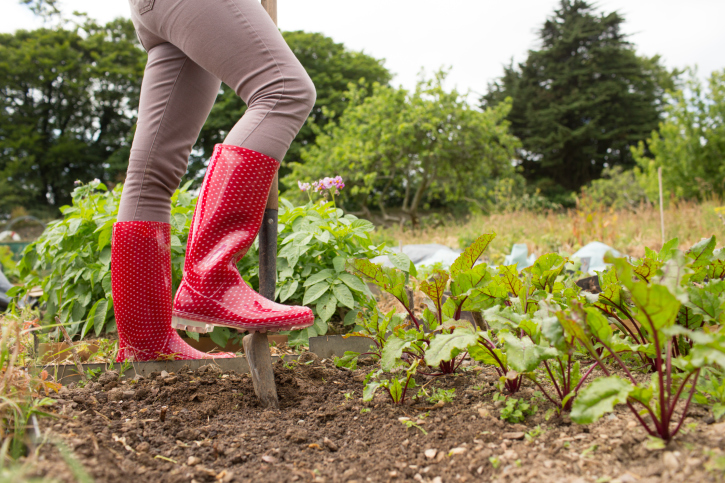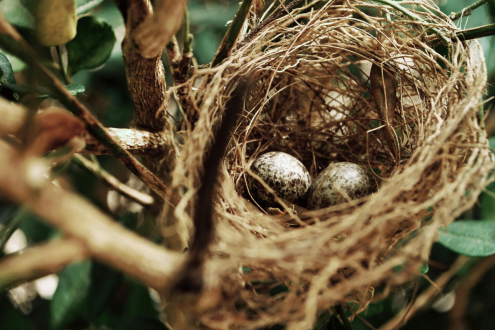Feel the benefits of engaging with nature
From the sound of a shovel hitting earth to the joy of seeing a new shoot break ground, working a garden can bring real meaning to our days. Andréa Childs finds out more

When a close friend lost her mum to cancer, her response was to start planting bulbs in the garden. Hundreds of them. The rhythmic digging; the repetitive lift and drop of plant into ground… it soothed her. And when those flowers bloomed the following spring, the joyful sight helped chase away her sorrow.
At the time, I was slightly baffled by this form of bereavement therapy, though I could see it helped. ‘It was just me, the garden and memories of my mum; everyday life faded away,’ she explains. ‘It gave me space to mourn her but also let me look ahead to the future. I know she’d have loved the flowers that come up year after year in her honour.’
My friend’s actions were an instinctive response but there’s a rising professional awareness of the benefits of engaging with nature. ‘Ecotherapy promotes emotional and psychological wellbeing through outdoor activity in a green environment,’ says Dr Tom Stevens, consultant psychiatrist at London Bridge Hospital. ‘There is growing evidence that being able to connect with nature and having responsibility for a plot of land has health benefits for people with mental health problems.’
The case for ecotherapy – or simply going outside more – stacks up. A report from Natural England found that, if every household in England had good access to quality green space, it could save an estimated £2.1bn per year in healthcare costs. Another, from Exeter University, found that people who live in greener areas have less mental distress and higher life satisfaction. Dutch research found people living near green space had better physical and mental health than those in urban environments. And in Japan, the practice of shinrin-yoku (forest bathing) has been found to promote relaxation by decreasing levels of cortisol and lowering both pulse rate and blood pressure.
‘As humans, I suspect we’re hardwired to be outdoors; it takes us out of ourselves and our thoughts,’ says Beth Murphy, head of information at mental health charity Mind, which runs Ecominds projects across the UK. ‘As we move to urban areas, we have less access to green space, often living in flats without gardens. Social isolation is a problem for anyone suffering from depression or other mental health issues. Mind uses green care or green exercise – activities in the open air – to help people feel more connected and to engage with the world. Just the act of gardening or walking can release endorphins that help people feel calmer and sleep better.’
Let's take this outside…
- To find an ecotherapy project near you and read Mind’s Feel Better Outside, Feel Better Inside report, go to: mind.org.uk/about-us/policies-issues/ecotherapy
- Ecotherapy sessions in Brighton are available at ecotherapy.org.uk. Martin Jordan, a psychologist who offers one-to-one and group ecotherapy in the city, also runs courses in nature-based therapy for professionals and is publishing a book on ecotherapy this autumn
- You can find a list of ecopsychology practitioners at ecopsychology.org.uk
More inspiration
Read The power of nature by Dr Steve Taylor on LifeLabs









